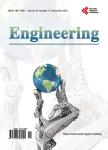Predictive Healthcare: An IoT-Based ANFIS Framework for Diabetes Diagnosis
Predictive Healthcare: An IoT-Based ANFIS Framework for Diabetes Diagnosis作者机构:Department of Engineering & Technology Trine University Detroit USA Department of Graduate & Professional Studies Trine University Detroit USA Department of Business Information System Central Michigan University Mount Pleasant USA Department of Business Administration & Management Washington University of Science & Technology Alexandria VA USA Department of Computer & Information Science Webster University Webster Groves USA
出 版 物:《Engineering(科研)》 (工程(英文)(1947-3931))
年 卷 期:2024年第16卷第10期
页 面:325-336页
学科分类:0711[理学-系统科学] 07[理学] 08[工学] 081101[工学-控制理论与控制工程] 0811[工学-控制科学与工程] 071102[理学-系统分析与集成] 081103[工学-系统工程]
主 题:Internet of Things (IoT) Machine Learning (ML) Diabetes Prediction Real-Time Diagnostics Predictive Healthcare
摘 要:The increasing integration of the Internet of Things (IoT) in healthcare is revolutionizing patient monitoring and disease prediction. This paper presents a machine learning (ML)-based framework using Adaptive Neuro-Fuzzy Inference System (ANFIS) to predict diabetes. The proposed system leverages IoT data to monitor key health parameters, including glucose levels, blood pressure, and age, offering real-time diagnostics for diabetes patients. The dataset used in this study was obtained from the UCI repository and underwent preprocessing, feature selection, and classification using the ANFIS model. Comparative analysis with other machine learning algorithms, such as Support Vector Machines (SVM), Naïve Bayes, and K-Nearest Neighbors (KNN), demonstrates that the proposed method achieves superior predictive performance. The experimental results show that the ANFIS model achieved an accuracy of 95.5%, outperforming conventional models, and providing more reliable decision-making in clinical settings. This study highlights the potential of combining IoT with machine learning to improve predictive healthcare applications, emphasizing the need for real-time patient monitoring systems.



